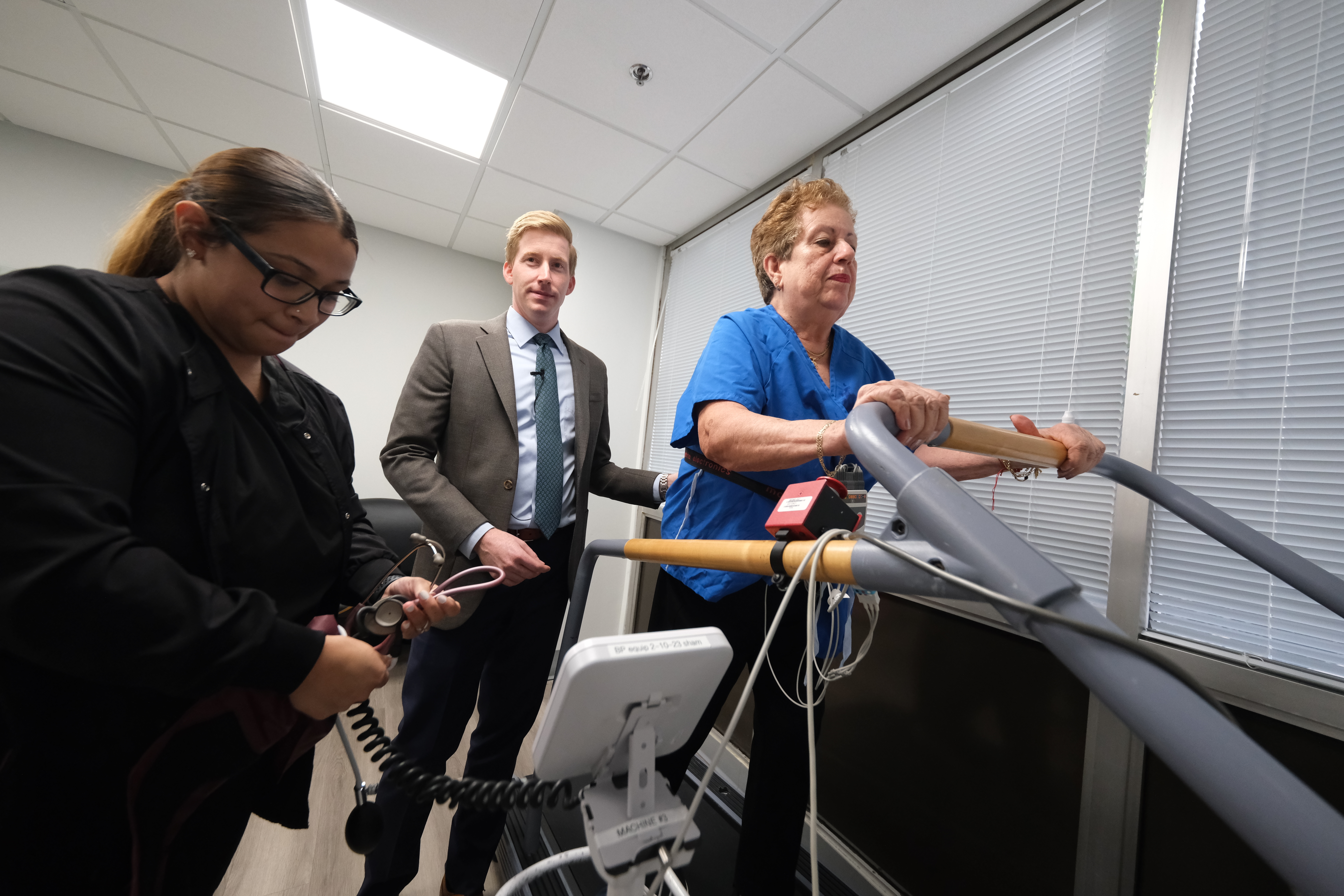At Cross County Cardiology, we often face the challenge of diagnosing symptoms that come and go, such as chest pains, irregular heartbeat, or breathing difficulties. These symptoms don’t always appear during routine electrocardiogram (ECG or EKG) tests performed in a calm, resting state, which can make it harder to pinpoint the issue. That’s where stress tests come in.
What Is a Regular Stress Test?
A regular stress test, also known as an exercise stress test, helps identify heart issues that may only arise when your heart is “under load.” Don’t be misled by the name—this test isn’t emotionally stressful. It’s a simple, non-invasive procedure performed in the office to measure your heart’s electrical activity, pulse, and blood pressure while you exercise.
The test involves walking on a treadmill that changes speed and incline every three minutes. This gradual increase in intensity helps Cross County Cardiology’s experienced heart specialists monitor your heart’s response to exertion. Throughout the test, you’ll be asked to report any symptoms like chest pain, difficulty breathing, or palpitations. These signs can indicate blockages in your arteries, which may cause your heart tissue to become ischemic (insufficiently supplied with blood). This condition is often detectable through ECG results during the test.
Preparing for Your Stress Test
To ensure accurate results, your cardiologist may schedule your stress test in the morning and recommend that you avoid eating or drinking beforehand. Wear light, comfortable clothing and supportive shoes to make exercising on the treadmill easier.
Before starting, small electrode patches will be applied to your skin to monitor your heart’s electrical activity, and you’ll wear a blood pressure cuff for continuous monitoring. While the exercise portion only lasts about 10 minutes, it’s best to set aside at least 30 minutes to account for preparation and any waiting time.
Why a Stress Test Matters
A regular stress test is an essential diagnostic tool that helps doctors identify heart conditions that might not be evident during a resting exam. By simulating physical exertion in a controlled environment, this test allows cardiologists to pinpoint potential issues, such as blocked arteries, and recommend appropriate treatment to improve your heart health.
Trust the Experts at Cross County Cardiology
If you’ve been experiencing sporadic symptoms like chest pains, irregular heartbeat, or shortness of breath, a stress test might be the next step toward understanding your heart health. Trust Cross County Cardiology to guide you through this safe and effective procedure, providing answers and peace of mind.




